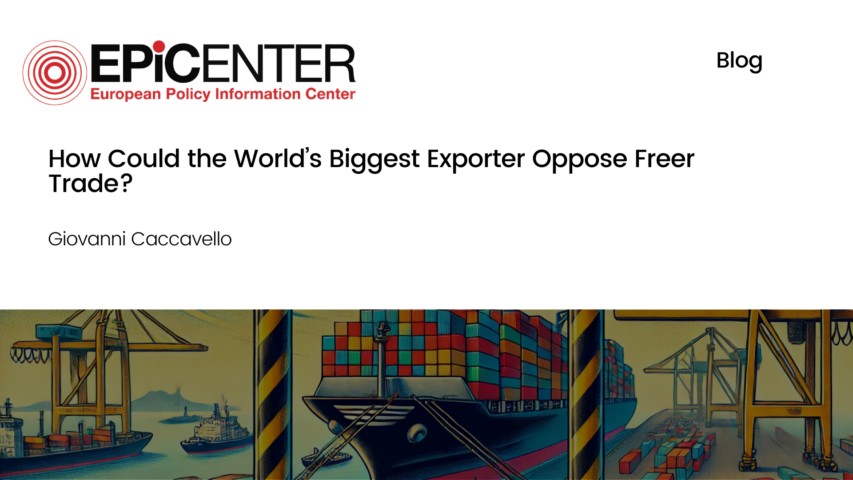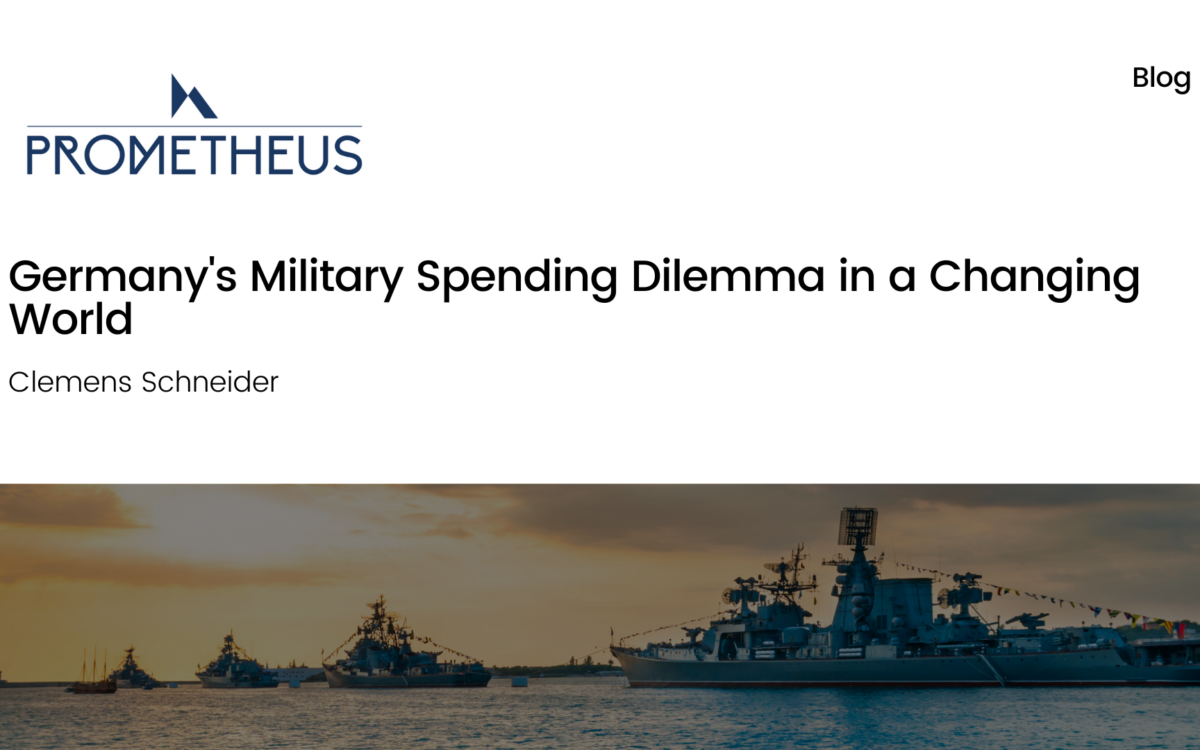How Could the World’s Biggest Exporter Oppose Freer Trade?

How Could the World’s Biggest Exporter Oppose Freer Trade?
Giovanni Caccavello, Research Fellow at EPICENTER // 17.11.2016
On September 17th, more than 100,000 people took to the streets of several German cities to protest against both the Transatlantic Trade and Investment Partnership (TTIP), the draft free trade deal between the EU and the United States, and its Canadian equivalent the Comprehensive Economic and Trade Agreement (CETA), which is slated to become law pending European Parliament ratification.
In his recent publication, Matthias Bauer, Senior Economist at ECIPE, argues that the September rallies were not the result of a bottom-up movement. Rather, they were the culmination of well-organised – albeit scaremongering and ill-informed – campaign “launched by a small number of influential politicians of Germany’s Green and Left-wing political parties (GRUENE, DIE LINKE, the Parliamentarian Left of the SPD) and associated political campaign managers masquerading and operating under the guise of pro-democracy, pro-environment and Christian civil society groups”.
Mainly thanks to these highly professionalised campaign groups, over the last two years Germans anti-TTIP promoters were able not only to organise thousands of anti-free-trade local events, but also to collect millions of signatures of Germans (and to a smaller extent, European citizens) via online petitions.
Just as an illustrative example of the scale of the initiatives, between 7th October 2014 and 6th October 2015 around 3.3 million people signed up to the so-called “Self-Organized European Citizens Initiative” (ECI), an online petition launched by Stop-TTIP, a Berlin based alliance of more than 500 European organisations opposed to TTIP and CETA.
What is most striking about these powerful anti-trade campaigns is that the vast majority of them originated and developed in Germany, a country that has gained enormously from international trade. As the Ifo Institute , one of Germany’s leading think-tanks, forecasted in early September, by the end of the year the country’s current-account surplus is set to hit an all-time high of US$ 310 billion, overtaking China once again.
Consequently, contrary to claims that Germans ought to oppose TTIP and CETA, Germany has done remarkably well thanks to freer global trade and firms dynamism over the last few decades. Merchandise trade as % of GDP (a good measure of an economy’s overall health) is an excellent example. As the graph below illustrates, Germany’s trade volume – exports plus imports – as a share of GDP more than doubled from 1975 to 2015 (World Bank, 2016). In other words, the more Germany has integrated with other European countries and with the global economy, the more its industries expanded and benefited from both the opening up and the rapid growth of new emerging markets, in particular labour-intensive China.
Moreover, due to its comparative advantage in some forms of industrial production, Germany is today reaping the deepest benefits of international trade and globalisation by leading the world into the so-called “fourth industrial revolution”.
Graph 1: Germany’s merchandise trade as % of GDP from 1975 to 2015 – World Bank (2016)
At the same time, high-technology exports as a percentage of manufactured exports increased from roughly 12% in 1989 to 16.6% in 2015, despite a general decline across the world (World Bank, 2016). This simply means that, as the global economy has moved towards the development of products with high R&D intensity such as aerospace, computing, pharmaceuticals, scientific instruments and electrical machinery, Germany has emerged as one of the most innovative and competitive countries in the world, dominating other high-tech nations like the U.S and Japan in this respect.
Graph 2: Germany’s & World’s high-technology exports as % of manufacture exports from 1989 to 2015 – World Bank (2016)
As economic history and classical trade theory make plain, trade is highly beneficial for nations (with Germany being absolutely no exception to the rule), making everyone better off. Countries gain from the ability to trade with one another. Trade allows countries to specialise in what they do best and to enjoy a greater variety of goods and services.
The benefits of a transatlantic trade agreement between the EU and the U.S are made apparent in the European Commission’s impact assessment, published in 2013. Despite being relatively conservative in its estimates, the EC study clearly suggests that a stronger trade relationship between EU Member States and America would first of all improve customers’ choice and reduce prices. Secondly, the harmonisation of standards that such a deal entails will primarily benefit small companies, which – usually – tend to be hit harder by fiddly double regulations. Thirdly, the TTIP will spur additional annual (and perennial) economic growth while creating more jobs rather than making things worse for workers.
Similar, even if minor – due to the relatively small size of the Canadian economy -, positive predictions were underscored by the 2011 European Commission “EU-Canada CETA” final report. Contrary to what organisations such as Friends of the Earth have argued, the new “Investment Court System” proposed by the European Commission in September 2015 will also apply to CETA, once the Member States will have concluded their national ratification procedures.
Economic analysis has time and again shown that trade liberalisation of the sort promoted by both TTIP and CETA will not harm, and is likely to measurably benefit, consumers and workers on both sides of the pond. Anti-trade campaign groups, aided – according to Bauer – by Russian media, have nonetheless dominated the debate for the better part of the last three years, creating the impression that a majority of citizens in many Member States oppose free exchange, when in fact most EU citizens support an EU-U.S. deal.
At any rate, the election of a new U.S. President running on an anti-trade platform looks likely to strengthen the hand, and indeed to achieve the outcome, desired by TTIP detractors in Europe.
EPICENTER publications and contributions from our member think tanks are designed to promote the discussion of economic issues and the role of markets in solving economic and social problems. As with all EPICENTER publications, the views expressed here are those of the author and not EPICENTER or its member think tanks (which have no corporate view).





